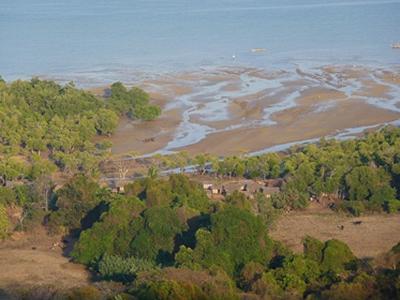SSS UN Day Blog- Dr James Dyke

This is the latest blog in our series of speaker and project bios for the Sustainability Science at Southampton UN World Development Information Day Seminar (24 October, 2012)
Blog Speaker profile- SSS UN World Development & Information Day
Dr James Dyke
Project title: Global Challenges Curriculum Innovation Programme module.
1. Tell us a bit about you and your project team
How stable is the Earth system, how does it respond to perturbations and what would be the consequences of pushing it too far? These are the sorts of questions I think about as a lecturer at the Institute for Complex Systems Simulation at the University of Southampton. The work I do is fundamentally interdisciplinary so I collaborate with a wide range of researchers in fields such as: artificial life, astrobiology, geography, geology, ecology, evolution, information theory and thermodynamics. It's a very mixed bag and I absolutely love it.
2. Tell us a bit about your project:
A perfect storm is approaching. By the middle of this century the world population will be 8-9 billion and we will have to produce much more food and energy and access much more water while at the same time reducing our impact on natural systems. All the evidence points to the possibility of dramatic shifts, tipping points and collapse in these natural systems. We are in danger of pushing too hard and too fast on the very systems that we rely on. This is the starting point for a new interdisciplinary and innovative undergraduate module called Global Challenges that will run for the first time next year.
3. Describe the impact of your project in terms of providing solutions to global development challenges:
If we are to seriously address the range of global challenges then we need to do so in a holistic manner. Seeking to intervene in food prices without understanding the connections to energy prices is futile. Demographic pressures such as climate change migration will have political ramifications. Finance and trade is increasingly a global phenomenon and intersects with all the global challenges. Our students are not responsible for these challenges, but they will be the ones who will have to live with them and, if future generations are to prosper, address them. In that respect we have a responsibility to equip them with the skills and experience that will be necessary to think about the global challenges in the context of interconnected systems and how best to approach them. We have 80 students signed up to the module and 8 guest lecturers who are internationally recognised in their respective fields and will be delivering a lot of the course material. We have interdisciplinary assignments and facilitation workshops lined up. It's all very ambitious and I am now beginning to experience a rising sense of panic when thinking about how we will pull this all off!
Further Information:
- Personal website: http://jamesgdyke.wordpress.com/
- Global Challenges CIP module: www.southampton.ac.uk/globalchallenges
- SSS UN Day Seminar & Live Stream:SSS MultiMedia Page


